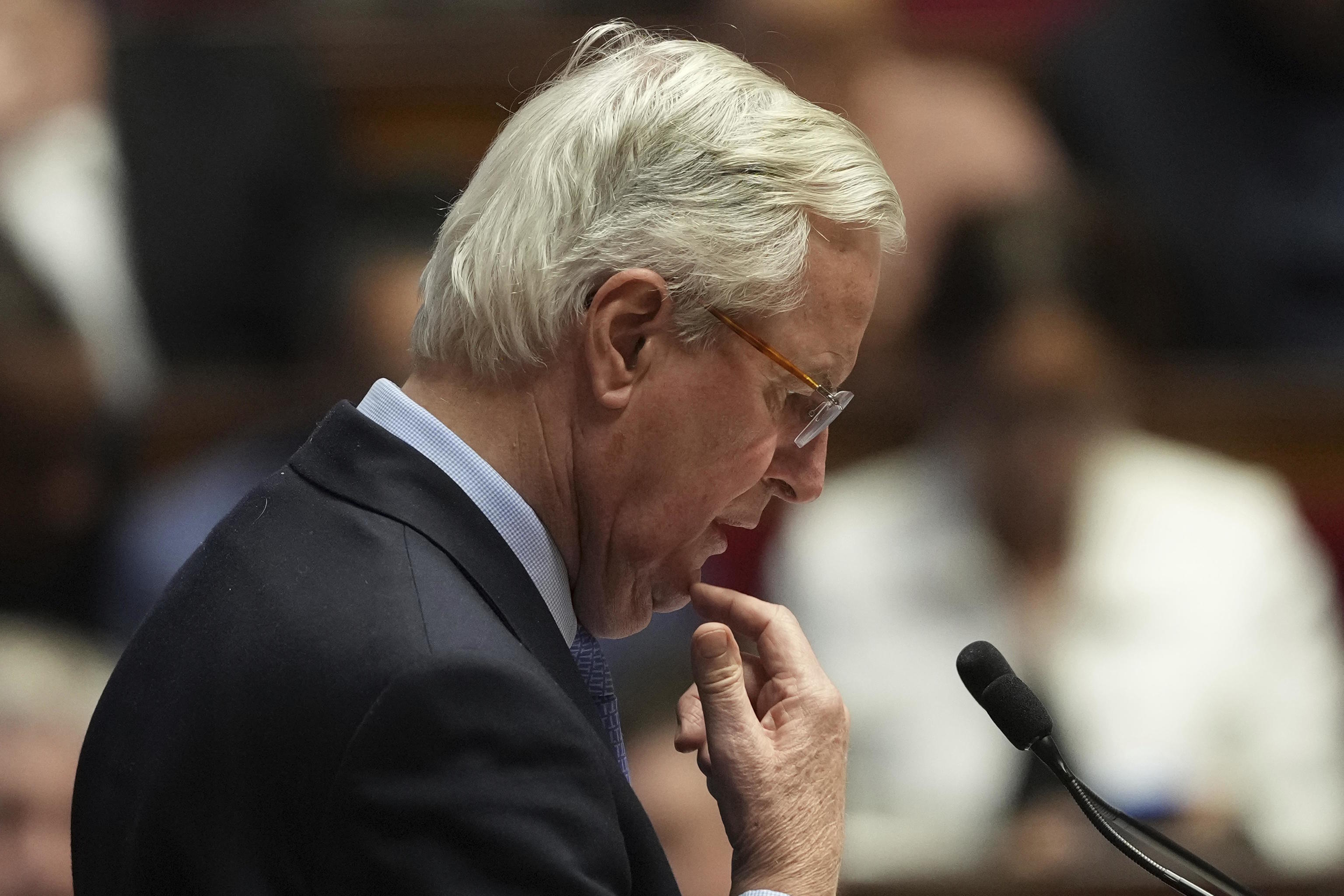The French Assembly, with votes from the left and the far right, has toppled this afternoon the French Government, led by conservative Michel Barnier, formed just three months ago, as the no-confidence motion presented by the left bloc, supported by Marine Le Pen's party, was successful. It was approved with 331 votes in favor. The required majority was 289 votes. This has not happened since 1962 when Georges Pompidou's government fell, with Charles de Gaulle as president.
"The motion has been approved (...) The Prime Minister will have to submit his resignation to the President of the Republic," said the Chamber's president, Yaël Braun Pivet, upon learning of the vote. Left-wing deputies greeted the decision with applause.
The country, already in the midst of great political instability, adds more uncertainty just three days before the reopening of Notre Dame Cathedral in Paris, which will be attended by heads of state and government, including the President-elect of the United States, Donald Trump.
"The moment of truth has arrived, unprecedented since 1962, the end of a fleeting, circumstantial, appearance-based government", stated Marine Le Pen, the second to speak, around five in the afternoon, at the start of the debate. She awaited her turn standing, outside her seat, with papers in hand. Wearing a black suit, when she took the stand, her party's deputies stood up to applaud her, while Macron's supporters booed her.
"In a few minutes, we will put an end to this optical illusion, what is surprising about this is the surprise of this Prime Minister, whose sectarianism prevented him from making the slightest concession that would have avoided this," she concluded.
It was three hours later, after a long debate, when Le Pen joined her votes with those of the left bloc, which includes socialists, ecologists, and communists but also encompasses the most radical wing, that of La France Insoumise. In fact, it is the party with the most weight in the bloc. To the latter, Le Pen warned: "We will never see them as allies."
In the seats, something that had been working at the polls has been broken: the unity of the parties to halt the advance of the far right, the so-called sanitary cordon. Today's motion has revealed the creation of a new cord, also unprecedented in France: the common vote of parliamentary extremes against Macron.
Gabriel Attal, Barnier's predecessor, condemned this alliance between the far left and the far right to bring down the government. "The Prime Minister did not come from our political family, but despite that, we have decided to support him because it is in the country's interest," he defended. He was barely allowed to finish, amid boos from both the left and the right.
The unusual aspect of today's session is illustrated by the fact that Jean-Luc Mélenchon, leader of La France Insoumise, was in the Assembly, although he is not a member of parliament. Also, while the censure was being debated, the French President, Emmanuel Macron, was landing in the country after his two-day trip to Saudi Arabia.
The session in the French Parliament began tense, focused mainly on the country's economic situation, with deficit and debt soaring. "Chaos is not the censure, chaos is already here," declared left-wing deputy Eric Coquerel, the first to speak.
Barnier, who was the last to speak, left amid applause from his party and Macron's supporters. "It is a moment of truth and responsibility," he said, amidst constant interruptions from the opposition benches. "I have tried to face reality by presenting a difficult financial text (...) This reality will not disappear with a change of government." "The French will not forgive inaction," he said. "Institutional destabilization cannot be the goal that unites deputies."
The words "chaos" and "instability" were the most mentioned during the debate, by both sides. The country's economic situation is at the root of the motions presented by the New Popular Front and National Rally (the latter was not voted on). They reject the budgets (the strictest in decades) that Barnier approved on Monday using Article 49.3 of the Constitution, which allows it to be done without a parliamentary vote. He did not have a majority in the seats to pass it otherwise.
It took months to form this fleeting government after the legislative elections in July left the Assembly fragmented and without a majority for any side. In fact, it was only possible because Marine Le Pen agreed not to censure it. Today's scene reveals the evidence: it is the leader of National Rally, the most voted party in France, on which the survival of the government depends, whether this one or the one that may be formed.
Macron could appoint a replacement in the coming hours. Tomorrow, he will address the French at eight in the evening in a speech from the Élysée. It is not clear whether it will be to announce a new Prime Minister. Another option is to appoint a team of technocrats to handle the country's current affairs. However, with few chances of pushing through major reforms. None of these scenarios guarantee stability or that he will not be censured again.
In the current context, Marine Le Pen is gaining strength while Emmanuel Macron is increasingly weakened. The decision to advance the legislative elections was already highly criticized, even within his ranks, and his popularity, at an all-time low in the past year, has plummeted.
In the current situation, there is one thing that could go wrong for Marine Le Pen: that she is ultimately convicted in the trial against her and other members of her party for diverting EU funds allocated to pay advisors in Brussels for party use. If convicted, she will be disqualified and unable to run in the 2027 presidential elections.
